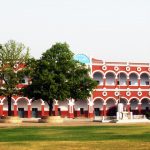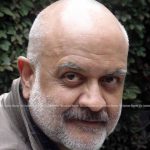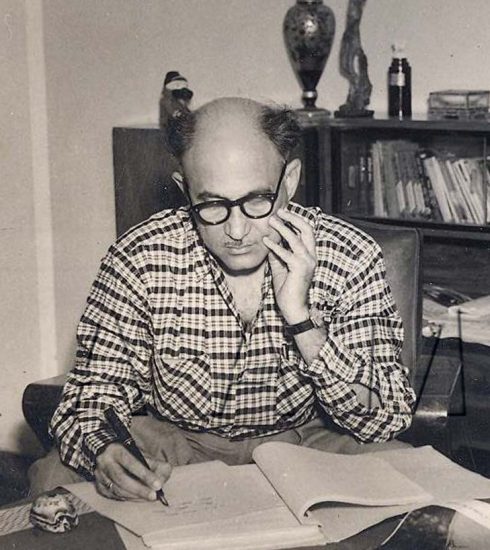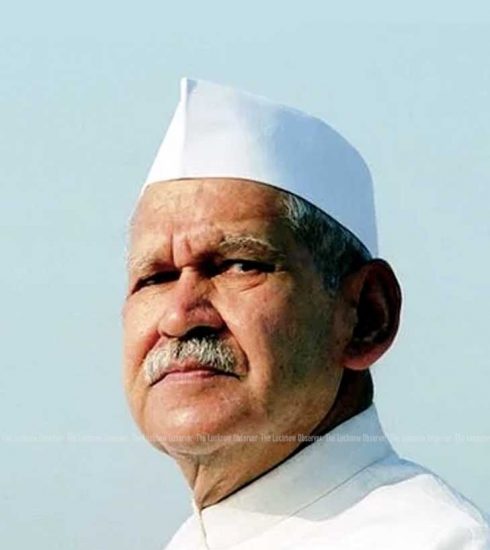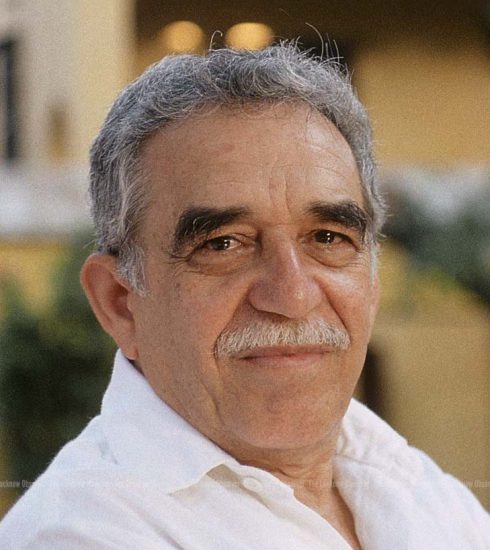Dr. Saadat Ali Siddiqui
A Warrior of Urdu
There have been numerous personalities in the field of literature who devoted their whole life span in the service of their passion and interests, but certainly there are very few who chose the hardships and compromised with the glamour and convenience to serve their motives.
Urdu, the language of love and one that sounds sweeter than honey has always been threatened by the bees and ants of the delicacies that are served with fancy presentations. The passage of Urdu has always been tumultuous through the times, sometimes owing to the facts that society had issues larger than literature and at others when languages are seen as representatives of communities. However, Urdu managed to overcome all the hurdles that comes across its ways and still bridges the widening gulf of the past with modern times.
One such personality who chose to carry the legacy of redefining Urdu was Dr. Saadat Ali Siddiqui who sacrificed the glamour and comfort of being a part of established Universities but preferred to offer the repairs at the grass-root level. Born on June 22, 1945 in the literary family of Shujaat Ali Sandeelwi who himself was a leading personality of Urdu literature and was associated with Department of Urdu, Lucknow University. As the circumstances had in store, Dr. Saadat was mainly connected to his uncle Shafaat Ali Siddiqui who also was a man of taste for literature, art and culture and was associated with Radio Services of the British India era that continued until his retirement in 80’s. Under the guidance of his uncle, he shared his passion for literature and got his primary and secondary education from Mumtaz College and Islamia College respectively and got himself enrolled at Lucknow University for his graduation and post- graduation. He was conferred upon a PhD on ‘Unneesween Sadi Mein Urdu Ka Zindaani Adab’ under the able guidance of Prof. Noorul Hasan Hashmi.
The challenges of life were always eager to romance with Dr. Saadat and the ground got ready with his employment as a Marketing Inspector at Haldwani in District Nainital. Soon he realised that he belonged to a different taste-bud and moved to Delhi. There he got engaged as an Urdu Lecturer at Delhi University on temporary basis, simultaneously he pursued his M. Litt. from Delhi University. He could easily have continued to enjoy the greener pastures and comfort of that job but he was not willing to compromise with the diplomacy that exists in the academic corridors and he soon he got distracted with the environment that was not conducive to his quest for his passion, Urdu. Thereafter, in the year 1971 he moved to Sambhal, Moradabad and realised the need to deep- root the cause of Urdu in that region of Ruhelkhand. He joined Mahatma Gandhi Post Graduate College in the capacity of Urdu lecturer and soon rose to head the department.
All this while he continued to write pieces for ‘Paigham-e-Taaleem’, ‘Ghuncha- e-Noor’, and ‘Toffee’ for Urdu daily Qaumi Aawaz alongside for ‘Roshni’, magazine for Mumtaz College. His first collection of articles was published in 1965 by the name of ‘Aaina Nasr Urdu’ that still remains a vital part of Urdu syllabus for various Universities. Dr. Saadat always ensured to cater the basic levels of Urdu by means of his association with ‘Urdu Mahaaz’, ‘Idaara Farogh Urdu’, ‘Aashiq Public Library’ at Sambhal, ‘Jannat Nishaan Talaeemi Mission’ at Moradabad and Uttar Pradesh Urdu Academy etc. He always ranked his association with ‘Jannat Nishaan’ in high esteem and credits this measure to create awareness of Urdu in that region. Dr. Saadat always advocated the usage of Urdu in daily lives to provide it (Urdu) the much needed oxygen and popularize it by means of making it more accessible. He always stood by the demands of having road-signage and other usage in the government functionaries. He suggested people to write postal addresses in Urdu so that Government would have no choice but to appoint more and more people who knew Urdu, irrespective of the faith.
The dedication for Urdu does not stopped at writings and promotional activities for Dr. Saadat, he went on to the extent of naming his house at Sambhal as ‘Urdu Ghar’, that demonstrates his passion for the language as normally people would prefer to highlight the names of their family members or their native places as a tradition. Right from the early days, Dr. Saadat had realised that if the language of Urdu has to sustain, there is an immense need of developing the interest in children to learn and cherish the language. To realise this task, he always remained available for even the smallest contribution towards ‘Anjuman Adab Itfaal’ and ‘Anjuman Taraqqi Urdu’.
In all Dr. Saadat Ali Siddiqui compiled about a dozen numbers of collections on various aspects of Urdu literature. He had a vision for the research and development of the language and somewhere deep-down in him bore a blueprint for the same. Before he could translate his vision into a reality, destiny had a different plan and a series of ailment came heavily on this warrior of the language and he returned to The Creator on February 13, 1994 at Lucknow. The world of Urdu literature woke up this shock when Aakashwani Lucknow broke this news at Pradeshik Samachaar of 07:20 AM that Dr. Saadat Ali Siddiqui had passed away.
The contributions and efforts of Dr. Saadat Ali Siddiqui continued even on the death bed and his last article ‘Ganga- Jamuni Hindustan’ got penned while he was struggling between life and departure. This article needs a separate mention in the times to come. The loss of Dr. Saadat Ali Siddiqui was a huge blow to the language and his departure justifiably gets a tribute with by the below lines of Zameer Ahmad ‘Zameer’:
Aye Saadat! Kaun Sa Manzar Kaha Jaaye Tujhe Kya Sharaab-e-Fikr Ka Saaghar Kaha Jaaye Tujhe Rehguzaar-e-Nasr Ka Rahbar Kaha Jaaye Tujhe Kaan-e-Urdu Ka Hansi Gauhar Kaha Jaaye Tujhe Dil Ye Kehta Hai Adab Parwar Kaha Jaaye Tujhe Aasmaan-e-Ilm Ka Akhtar Kaha Jaaye Tujhe.
Shaheer A. Mirza
Writer is a travel professional, freelance writer, commentator and a political analyst
(Published in The Lucknow Observer, Volume 9 Issue 1, Dated 05 December 2015)





